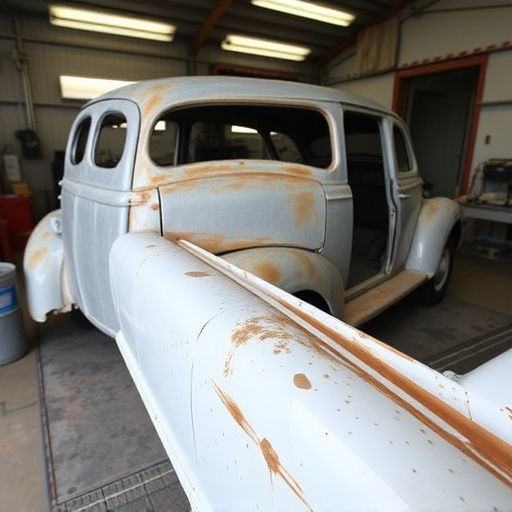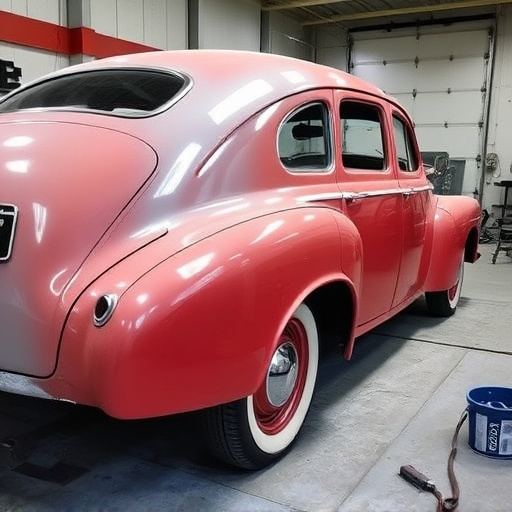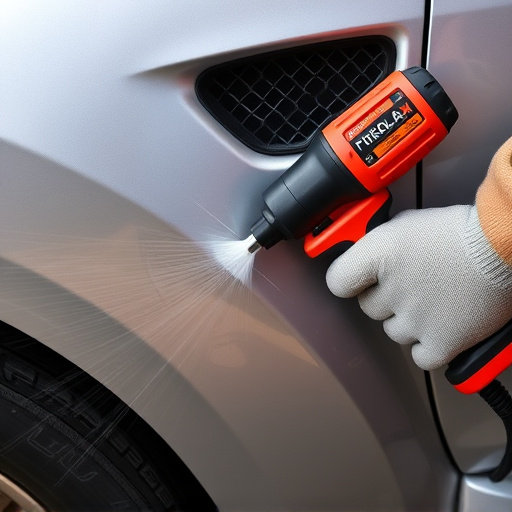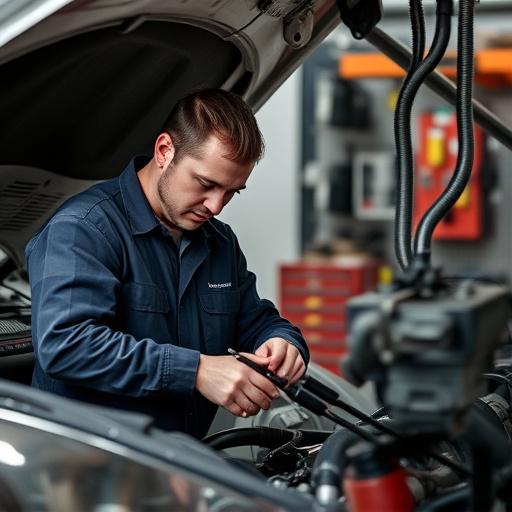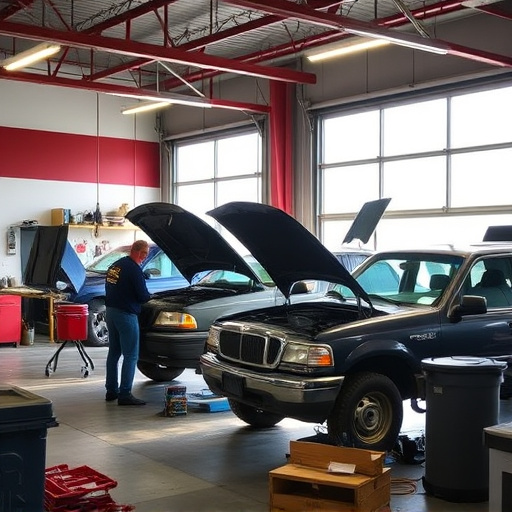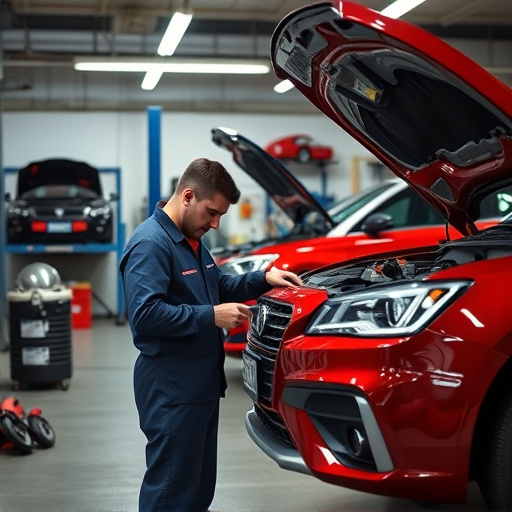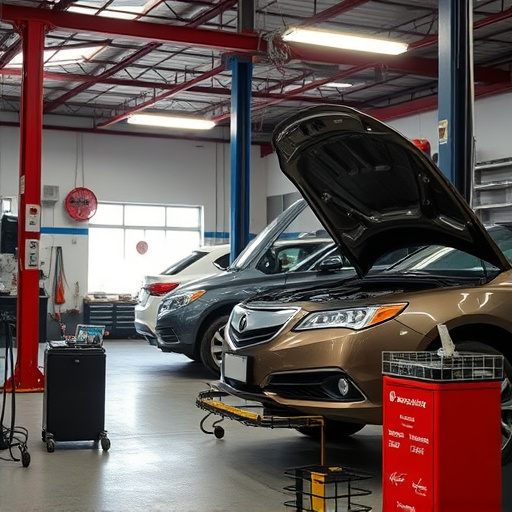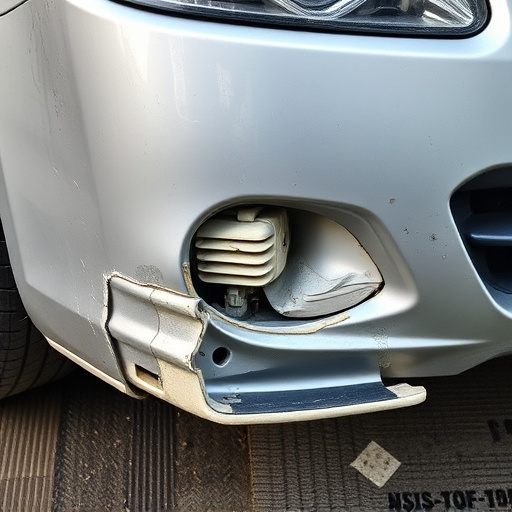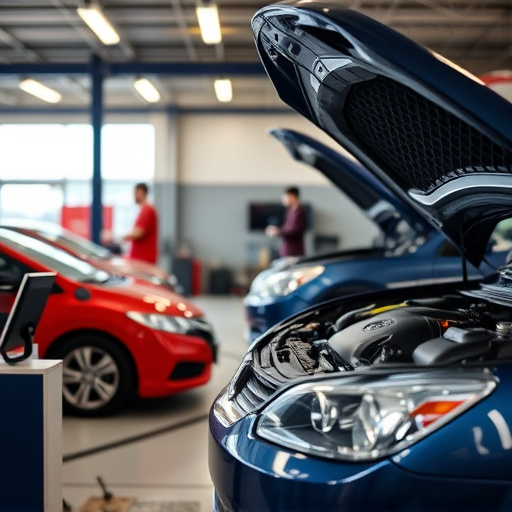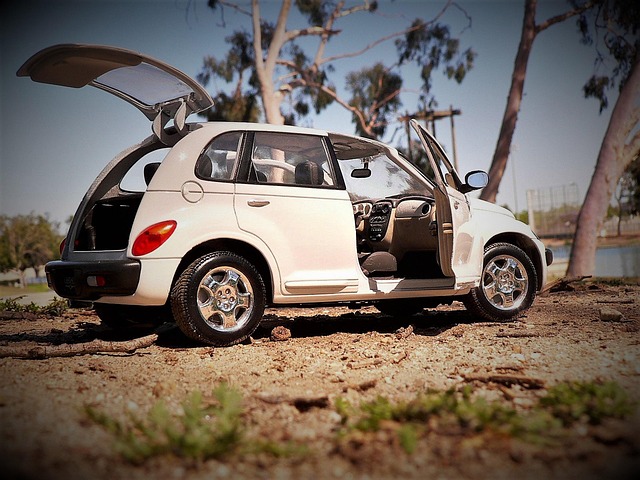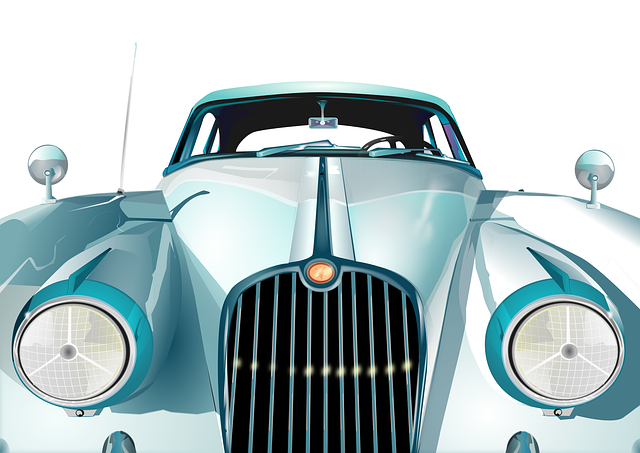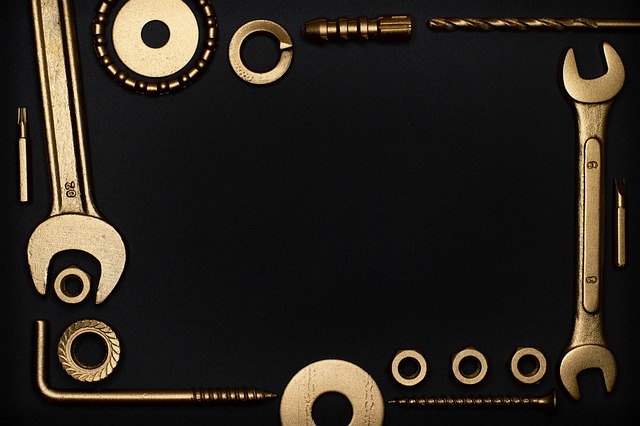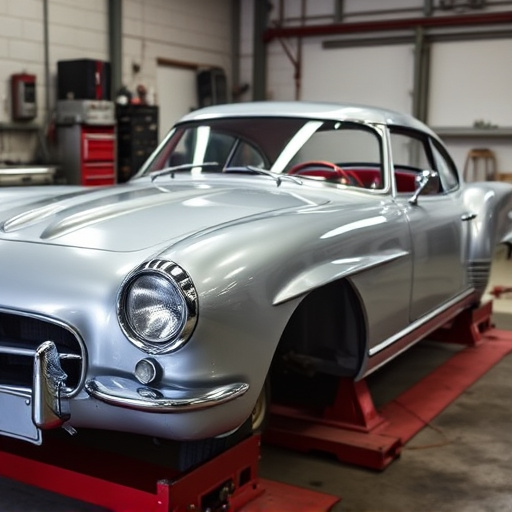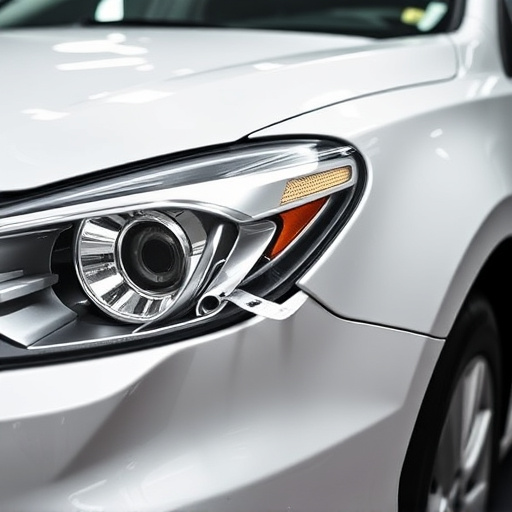Collision repair technicians are skilled professionals who restore damaged vehicles to like-new condition using advanced mechanical knowledge, precise tool manipulation, and creative problem-solving. They communicate effectively, stay current on industry trends, and employ diverse tools & technology including CAD software, robotic welding, paint spraying machines, and curing booths. Technicians must be proficient in panel replacement, welding, painting, and diagnostics to address hidden impact issues, ensuring top-tier car bodywork services and enhancing customer satisfaction.
Collision repair technicians play a vital role in restoring damaged vehicles to their pre-incident condition. This article delves into the key areas of expertise that define this specialized profession. From essential skills required for precision work to the common tools and equipment used, we explore what sets these technicians apart. Additionally, we highlight specialized knowledge areas in auto body damage restoration, providing a comprehensive guide for understanding the intricacies of collision repair technician work.
- Essential Skills for Collision Repair Technicians
- Common Tools and Equipment Used in Repair
- Specialized Knowledge Areas in Auto Body Damage Restoration
Essential Skills for Collision Repair Technicians
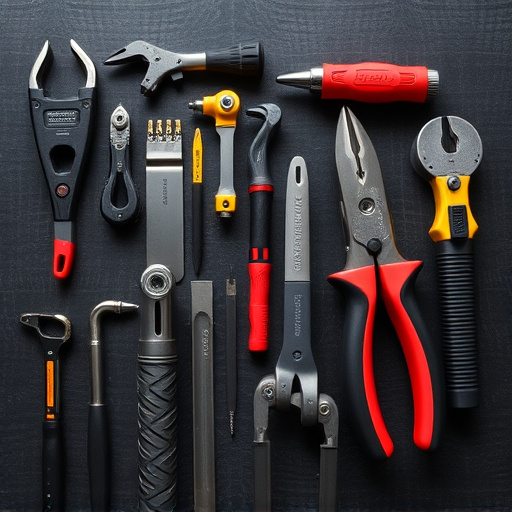
Collision repair technicians play a pivotal role in restoring damaged vehicles to their pre-accident condition, requiring a unique blend of technical skills and creativity. At the heart of their expertise lies an array of essential abilities that enable them to navigate the complex landscape of auto maintenance and automotive restoration.
Beyond basic mechanical knowledge, these professionals must possess exceptional problem-solving skills. Vehicle collision repair is a multifaceted process that demands technicians to meticulously assess damage, choose the right repair methods, and use specialized tools with precision. Effective communication is another vital skill, as technicians often collaborate with customers, providing clear updates and addressing concerns throughout the repair process. Additionally, staying abreast of industry trends and technological advancements ensures that collision repair technicians can offer cutting-edge solutions in the ever-evolving world of vehicle collision repair.
Common Tools and Equipment Used in Repair
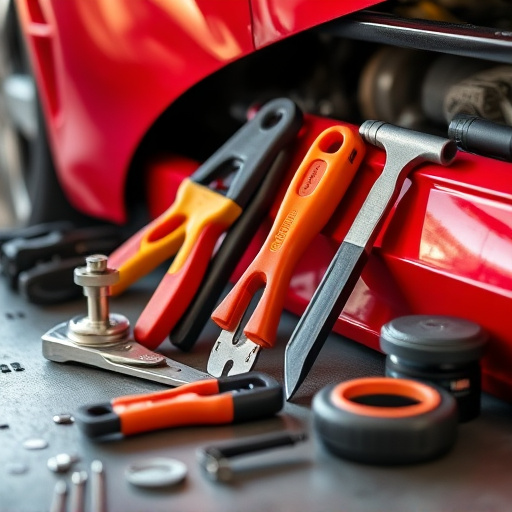
Collision repair technicians rely on a variety of specialized tools and equipment to perform their intricate work accurately and efficiently. These include power tools such as welders, sanders, and grinders designed for precision cutting, shaping, and smoothing of damaged auto parts. Hand tools like hammers, picks, and screwdrivers are also essential for more delicate tasks.
Additionally, collision repair technicians often utilize advanced technology in the form of computer-aided design (CAD) software to measure and map damage, as well as robotic welding systems that enhance accuracy and speed. Other important equipment includes paint spraying machines and oven-like baking booths for curing paints. These tools collectively enable car restoration, effectively addressing various automotive body work issues from minor car scratch repairs to major crash damage reconstruction, ultimately ensuring vehicles return to their pre-accident condition.
Specialized Knowledge Areas in Auto Body Damage Restoration
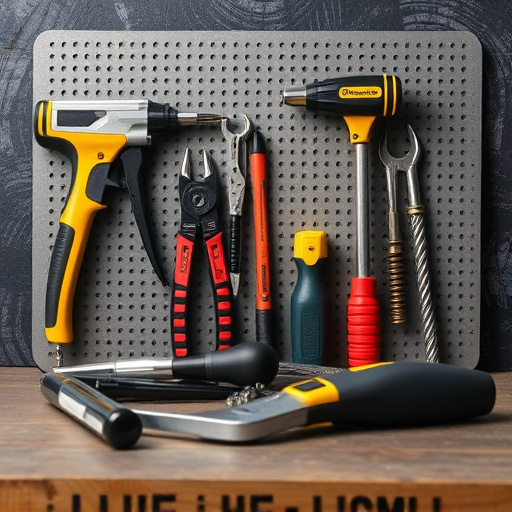
Collision repair technicians require a deep understanding of specialized knowledge areas in auto body damage restoration to effectively fix vehicles. This includes proficiency in various types of car bodywork services, such as panel replacement, welding, and painting. Each of these processes demands specific skills and techniques to ensure precision and quality, ultimately restoring the vehicle’s structural integrity and aesthetic appeal.
Moreover, these technicians must be adept at diagnosing complex damage, including identifying hidden issues that may have been caused by the impact. This involves knowledge of advanced diagnostic tools and a keen eye for detail. Additionally, staying updated with the latest advancements in vehicle dent repair techniques is crucial, as it allows collision repair technicians to provide efficient and effective solutions for various types of dents and scratches, enhancing customer satisfaction and ensuring top-notch car bodywork services.
Collision repair technicians play a vital role in restoring vehicles to their pre-accident condition, requiring a unique blend of skills, tools, and knowledge. By mastering essential techniques, staying updated with modern equipment, and acquiring specialized know-how, these professionals ensure the safety and aesthetics of damaged vehicles. With constant advancements in automotive technology, continuous learning is key for collision repair technicians to stay ahead and provide exceptional repairs.

